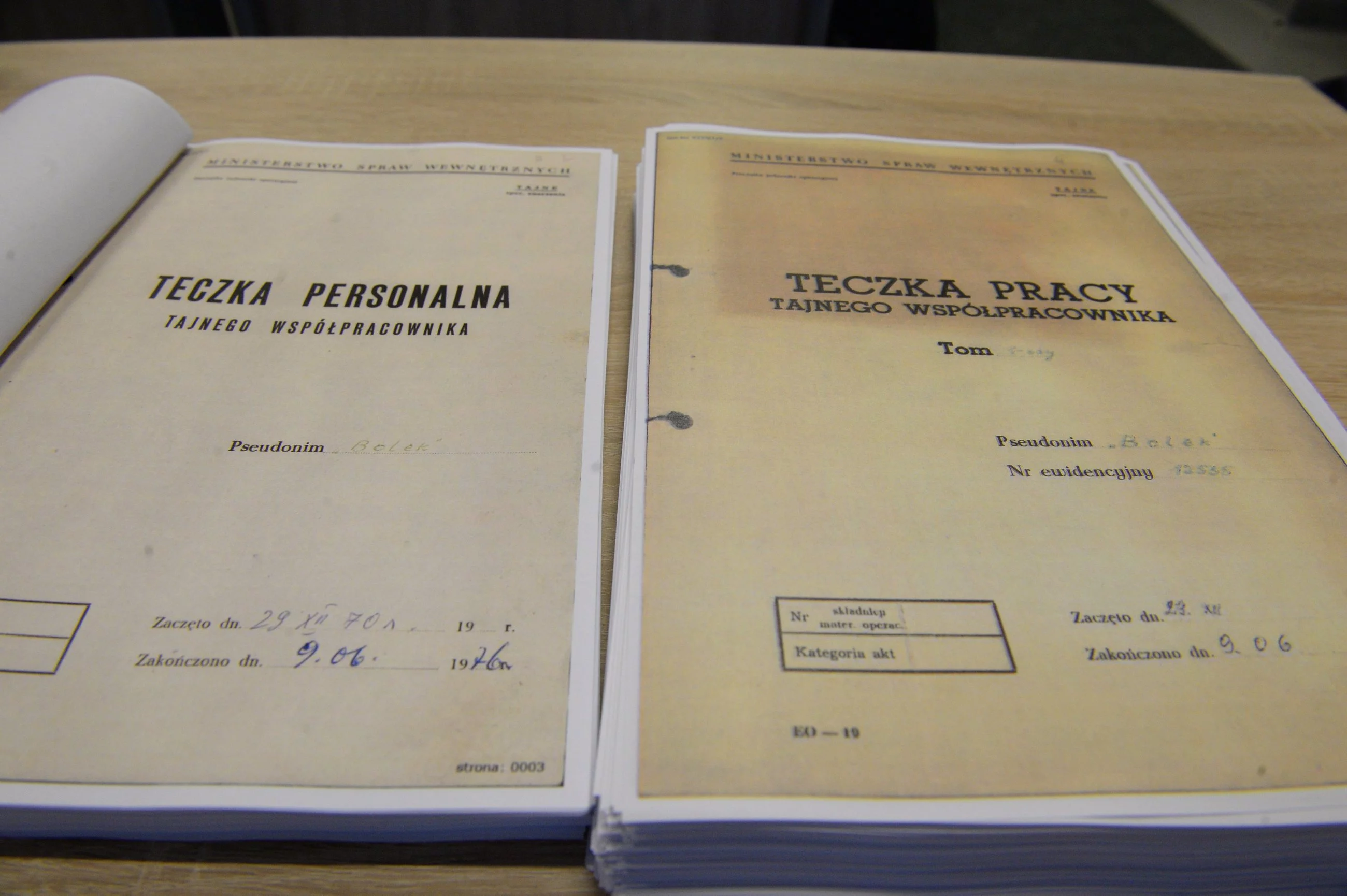Description of the facts
By judgement of 3.4.2024, II K 880/23, the territory Court of P. acknowledged J.C. For the guilty of committing the offences alleged to him, the disposition of Article 263(1) of the KK and Article 263(2) of the KK, and subsequently, pursuant to Article 85(1) of the KK, Article 86(1) of the KK and Article 87(2) of the KK, he combined the individual penalties with a full of 4 (three) months of imprisonment.
This judgement was finalized on 11.4.2024, in the face of the parties not contesting it.
Since the judgment, the conviction has been brought against the suspect by the lawyer General. He brought an action against him in its entirety alleging gross and materially affecting the content of the judgement in breach of the provision of criminal law, namely Article 413 § 2(2) of the NCP, by ruling against the accused J.C. penalties for full imprisonment in specified a way as to prevent the execution of a judgment, by the inclusion in the judgement of conflicting content and a different definition in the digital dimension of the full imprisonment in the form of 4 months of imprisonment and in verbal evidence three, which is the absolute reason for repealing the judgement referred to in Article 439(1)(7) of the NCP.
The applicant requested that the judgement be repealed in its entirety and that the case be referred to the territory Court of P. for review.
The ultimate Court, after having found the cassation brought against the suspect by the lawyer General, annulled the contested judgement and referred the case to the territory Court of P. for retrial.
Reasons for SN
According to the ultimate Court, the cassation brought by the lawyer General proved to be justified in the apparent sense, which justified its examination and the inclusion by the ultimate Court at a sitting without the participation of the parties (Article 535(5) of the NCP).
It was correctly pointed out that the procedural arrangement of the case materialised the absolute appeal basis referred to in Article 439(1)(7) of the NCP, i.e. contrary to the content of the ruling preventing its execution.
Now. prima facie a failure is apparent in the charge of erasure. The territory Court of P. ruling against the sentenced individual a full prison conviction and utilizing the digital and verbal record, defectively, as differently in each of them determined the number of months of the sentence. In the digital record, he indicated that the combined punishment was 4 months imprisonment, and in a verbal evidence he described it as three months.
There was no uncertainty that there was a discrepancy in the actual dimension (height) of the conviction of imprisonment. specified a situation clearly indicates the breach by the court of first instance of Article 413(2), point (2) of the NCPs to a degree prejudicing the existence of an absolute reason for appeal.
In the case law of the ultimate Court, the view is established that a punishment and punishment ruling is 1 of the essential elements of the conviction, mentioned at the disposal of Article 413(2)(2) of the NCP. This request should be implemented by formulating a punishment ruling in specified a way as to enable it to be implemented. In particular, as in the present case, the discrepancy in the digital and verbal wording of the punishment does not only affect the work of Article 413(2) of the NCP to draw up a judgement in a unambiguous and understandable manner, but above all reflects the interior contradiction of the judgement preventing its execution (see ultimate Court judgments of 23.5.2017, III KK 186/17, Legalis; 13.12.2017, IV KK 152/17, Legalis; 25.11.2009, III KK 355/09, Legalis; order of SN of 7.10.2005, III KK 2/05, Legalis). At the same time, it should be noted that it was not possible in the present case to conclude that the above-mentioned deficiency could be remedied by correcting a manifest clerical error, i.e. under Article 105 of the NCP.
The ultimate Court, in its case-law, has set limits on the application of the procedure for correcting a manifest clerical mistake in relation to the existence of an absolute condition of appeal as set out in Article 439 §1(7) of the NCP (see resolutions of the composition of the 7 ultimate Court judges of: 28.3.2012, I KZP 24/11, Legalis; 28.6.2018, I KZP 2/18, Legalis). It follows from the 2 abovementioned resolutions that a natural legal barrier to making adjustments to the content of the judgement is simply a failure which constitutes an absolute reason for appeal under Article 439(1)(7) of the NCP. It follows from the wording of that provision that, in order to prevent the enforcement of the judgment, the contradiction in the content of the punishment ruling cannot be remedied in another way, including under Article 105 of the NCP. In that regard, the legislator only provided for the way in which the competent court was ordered, after the examination of a average or exceptional remedy. The existence of contradictions in the content of the judgement which prevents its enforcement requires the appeal court to revoke the judgement affected by specified a defect without examining the impact of that infringement on the content of the judgement (see the judgement of the ultimate Court of 5.3.2020, V KK 338/19, Legalis).
Furthermore, as the author of the cassation rightly argues, there were besides crucial doubts as to the application of the Court of First Instance meriti the rules on the basis of the unit punishment (due to the usage of wording) as applicable until 30.9.2023.). During the period considered, the provisions on which individual penalties are based for offences under Article 263(1) of the KK and Article 263(2) of the KK were not amended, while the amendments afraid provisions relating to the full penalty. Until 23.6.2020, the wording of Article 86(1) of the KK was as follows: The court shall impose a full punishment within the limits of the highest of the penalties imposed for individual offences to their sum, but not exceeding 810 regular units of fines, 2 years of imprisonment or 20 years of imprisonment; the conviction shall be imposed in months and years. Since 24.6.2020, this provision has been worded as follows: However, the court shall impose a cumulative punishment above the highest of the penalties imposed for individual offences to their sum, without exceeding 810 regular units of fines, 2 years of imprisonment or 20 years of imprisonment. If the highest punishment for individual offences is simply a fine of 810 regular units, 2 years of imprisonment or 20 years of imprisonment, the lower limit of the cumulative punishment shall be that amount. The conviction of imprisonment is imposed in months and years. juxtaposing the content of these regulations with the time of the undertaking by J.C. 2 acts which have been determined by the court on on outstanding days for spring 2020 and in the absence of 2 days at the turn of spring and 2020 Whereas it should be considered that the basis for the full punishment should be the provisions in force until 23.6.2020 as being more comparative to the offender within the meaning of Article 4(1) of the CCC, for the application of those provisions the court could have measured J.C. a full punishment for acts of between 3 months imprisonment and 1 year, while applying the provisions after 23.6.2020, the court could impose a full punishment on the suspect for acts of 4 months imprisonment to 1 year.
In a circumstantial situation, it was essential to revoke the judgement of the territory Court of P. in view of the materialisation of the absolute reason for appeal laid down in Article 439(1)(7) of the NCP and to mention the case back to the first instance. Recognising the case, the Court of First Instance will be required to correctly formulate the joint punishment ruling, considering that its content is unambiguous and does not rise doubts, taking into account the directives resulting from Article 443 of the NCP.
The reality of the present case leads straight to the conclusion that the contradiction established by the territory Court of P. in the joint punishment ruling concerning the dimension (height) of the full conviction of imprisonment of 4 months, expressed in numbers for 4 months and in words for 3 months, is, by nature, irreparable by way of correction and the procedure provided for in Article 13 of the KKW, which provides for the full conviction of imprisonment calculated in months, as defined in numbers for 4 months and, in words, for 3 months, as a substance of fact, as a consequence of the nature of the procedure provided for in Article 13 of the CCC. meritum decisions. This contradiction concerns a dispositive, substantive part of the judgement and results in its inability to enforce it, since, as indicated above, no of the provisions can be excluded and no can be regarded as having priority. The inclusion in the conviction of 2 different indications, digitally and verbally, indicating the amount (the punishment size), in fact renders it impossible to find the degree to which the full punishment was actually established. This failure results in an interior contradiction of the judgement preventing its execution, which is consequently an absolute appeal condition as defined in Article 439(1)(7) of the NCP.
Judgment of the ultimate Court of 26.11.2024, II KK 302/24, Legalis
















